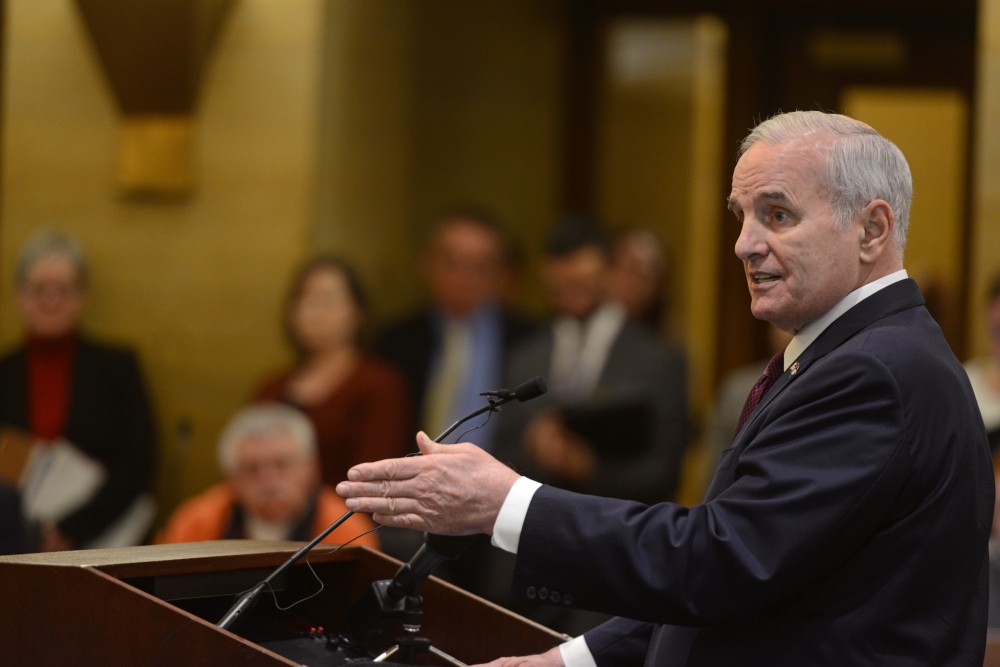University of Minnesota representatives continued to make their case to state legislators for millions of dollars in additional state funds.
University administrators, faculty and students presented the school’s biennial budget request, which includes almost $150 million for initiatives, to the Senate higher education committee Tuesday.
The initiatives include money to retain faculty and staff, student services, research and healthcare, among others.
“If we are to continue to be great and strong, we need these investments,” said University President Eric Kaler at the meeting.
Selling the University’s effect
Kaler said without state support for the initiatives, tuition would have to increase for resident and nonresident students alike.
“We would have to squeeze very, very hard,” he said Tuesday.
Sen. Jason Isaacson, DFL-Shoreview, said the University should further stress its economic impact on the state, adding legislators often don’t see investments in the school as investments in the state.
“It only makes sense if we continue investments that make our state great,” Isaacson said. “I can’t stress enough for the committee… to really recognize the contribution that’s being made and our opportunity to continue that down the road.”
STEM and research
The University wants $22 million in the next biennium to boost retention and graduation rates, as well as to expand STEM programs.
Additionally, the school is asking for $4 million to grow the Natural Resource Research Institute, and $32 million to expand the Minnesota Discovery, Research and Innovation Economy, which focuses on statewide research.
Bell Museum renovation
A request for $7 million would help fund the new Bell Museum of Natural History and expand its programming.
Denise Young, the museum’s executive director, said even accounting for fundraising and other revenue, the project needs state support. “[These costs] are more than we can bear on our own.”
Health training additions
The school is asking the state for $14 million over the biennium to support health training and services in the Department of Family Medicine and Community Health, along with the University’s School of Dentistry, which currently faces budget deficits.
“This request is truly a need,” said Medical School Dean Brooks Jackson. “Without it, we won’t be able to continue what we’ve been doing.”
Correction: a previous version of this story incorrectly stated the amount of the University’s budge request. The University is asking for $147.2 million.








